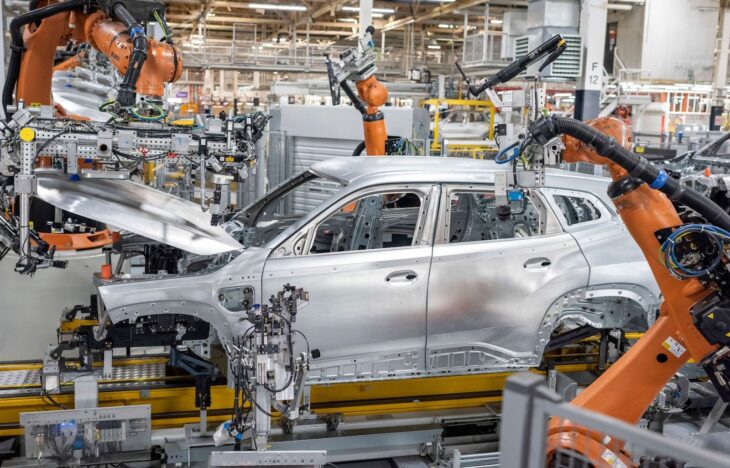Under a new partnership, Rio Tinto plans to provide responsibly sourced aluminum to the BMW Group’s vehicle production plant in Spartanburg, South Carolina, for use in body components beginning in 2024. Low-carbon primary aluminum from Rio Tinto’s hydro-powered operations in Canada, combined with recycled content, could generate a reduction of up to 70% in CO2 emissions when compared to conventionally manufactured aluminum.
The two companies have signed an MOU, which will see technical experts working together on how to embed these low-carbon solutions into the BMW Group’s supply chain while ensuring the highest standards of vehicle quality are maintained. The partnership provides for the use of aluminum produced using ELYSIS™ on BMW production vehicles. ELYSIS is the world’s first carbon free smelting technology for aluminum, which Rio Tinto codeveloped with Alcoa. The technology enables the production of the metal without direct carbon dioxide emissions during the smelting process, instead emitting pure oxygen.
“Rio Tinto’s world-leading position in responsible aluminium production means we can offer innovative solutions to our customers on their decarbonization journey toward net zero,” said Alf Barrios, Chief Commercial Officer, Rio Tinto. “As global demand for responsibly sourced materials continues to grow, automakers are increasingly looking to partner with suppliers who share their commitment to traceability and sustainability. Rio Tinto is proud to play a role in helping to drive a greener future in the premium car industry through this partnership with the BMW Group and we look forward to deepening our ties with the automotive industry in the years ahead.”
Rio Tinto and the BMW Group will also work to deploy START from Rio Tinto. START provides supply chain traceability to customers and consumers with information about origins and ESG standards. Rio Tinto launched START in 2021, to forge a new standard in transparency, traceability and provenance/origins for the aluminium industry. Using secure blockchain technology, START provides key information about how Rio Tinto aluminium was made, covering fourteen criteria: global warming potential, water management, waste management, energy sources, air emissions, biodiversity, land management, recycled content, safety performance, community investment, third-party assessments, ethics and compliance training, diversity in leadership and Rio Tinto’s whistleblower program.
“We have clear goals for lowering CO2 emissions in the supply chain,” said Joachim Post, BMW AG member of the board of management, responsible for Purchasing and Supplier Network. “By using innovative materials, we can reduce our vehicles’ carbon footprint – even before handing them over to customers. The agreement to supply low-carbon aluminum is based on several pillars: in addition to hydroelectric power and secondary material, we also want to lead the automotive industry by ramping up our use of aluminum with no direct CO2 emissions from the smelting process.”

